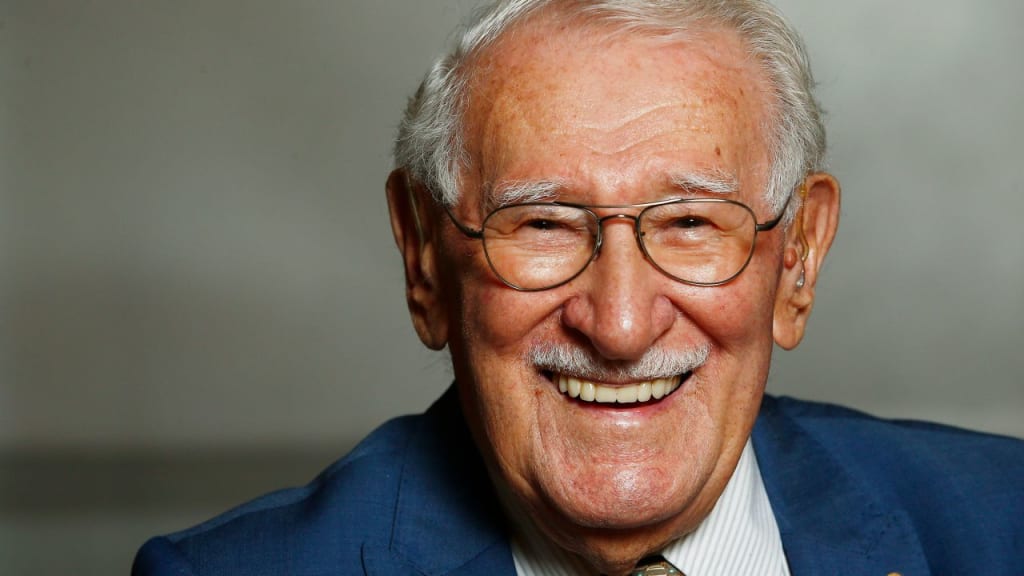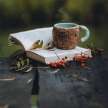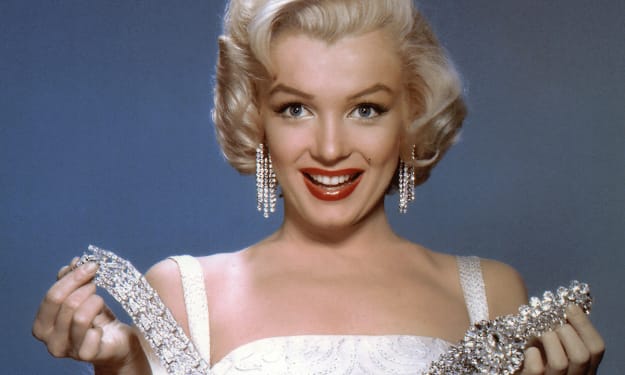Life in happiness
mr.eddie jaku

Holocaust survivor Eddie Jaku was born in Leipzig, Germany, in 1920, and has made it his life's work to spread kindness, forbearance, and sympathy.
When the Nazis came to control, Jaku was forced to leave his country as a young man. He was ultimately detained and taken to the Buchenwald concentration camp, where he was subjected to harsh treatment and forced to work under brutal circumstances.
Jaku never gave up hope or his faith in the goodness of people in the face of the atrocities he had to endure. Following his release, he immigrated to Australia, where he established himself and started a family.
Jaku established the "Life in Happiness" programme and became an advocate for Holocaust education in his latAlthough his parents and sibling perished in the camps, Jaku survived the Holocaust. He left for Australia after the war and began a new existence there. He ultimately rose to prominence as a businessman and philanthropist and has spent a significant portion of his life working to advance tolerance and understanding.
Jaku talks about his experiences during the Holocaust and his path to recovery and resiliency in "The Happiest Man on Earth." He focuses on the value of forgiving, being grateful, and having kindness. He also shares how he has been able to find happiness and purpose in life in spite of the trauma he has gone through.
Jaku has developed into a well-known public speaker and a supporter of human rights and Holocaust teaching. He has delivered speeches to audiences all over the globe ander years.Throughout the conflict, Jaku was held in a number of concentration camps, including Sachsenhausen, Buchenwald, and Auschwitz. He laboured in a variety of forced labour jobs while incarcerated in the camps, where he was subjected to cruel treatment, starvation, and illness. Jaku discovered methods to hold onto hope and remain grounded in his humanity despite the challenging circumstances. He met his wife, Flore, in the camps, where he also picked up the art of music-making on a homemade instrument.
Jaku immigrated to Australia following the war, where he established a new life with Flore and ultimately launched a prosperous business. Jaku has spent his entire life speaking to thousands of pupils and community members about his experiences and advocating for Holocaust education.
Holocaust survivor Eddie Jaku wrote the novel "The Happiest Man on Earth." The book describes Jaku's experiences growing up as a Jew in Germany during the rise of the Nazi party, his internment in various concentration camps throughout the war, and his ultimate freedom and emigration to Australia.
Jaku talks about his resiliency and capacity to find joy and gratitude in life despite the horrors he went through and saw during the Holocaust. He attributes the teachings he learned from his parents, who instilled in him a strong sense of kindness, empathy, and compassion, to his positive attitude.
Jaku stresses the value of forgiving others, being in the present, and finding joy in the little things throughout the entire novel. He talks about his own experiences and existence
Jaku considers in his autobiography "The Happiest Man on Earth"Jaku talks about his ability to find happiness and gratitude in life despite the trauma and suffering he went through during the Holocaust. He credits his parents, who instilled in him a strong sense of kindness, empathy, and compassion, for teaching him the lessons that led to this optimistic perspective.
Jaku stresses the value of forgiving others and residing in the present throughout the entire novel. Additionally, he offers personal stories and wisdom from his life experiences.
Although the novel deals with serious issues, Jaku's writing is uplifting and motivating. He discusses the tenacity of the human spirit in the face of unfathomable adversity and presents a distinctive viewpoint on the significance of hope, love, and kindness.
"The Happiest Man on Earth" is a film thatJaku's autobiography starts with his early years in Germany, where he was raised by a devoted Jewish family. He talks about the rise of the Nazi party and how his own family was subjected to growing Jewish persecution. Jaku was ultimately detained and sent to a number of concentration camps, where he encountered harsh treatment and horrifying crimes.
Jaku managed to maintain his humanity and his connection to his sense of kindness and sympathy despite the horrors of the camps. While in the camps, he played music, found solace in the bonds he made with other inmates, even fell in love and married.
About the Creator
PRABHA STORY WRITES
I overrate stories over films...poetry over modern songs...and nature over parties. Seek here to know about breathe taking contents,"no blinking stories" and nothing less than the word "amazing".






Comments
There are no comments for this story
Be the first to respond and start the conversation.